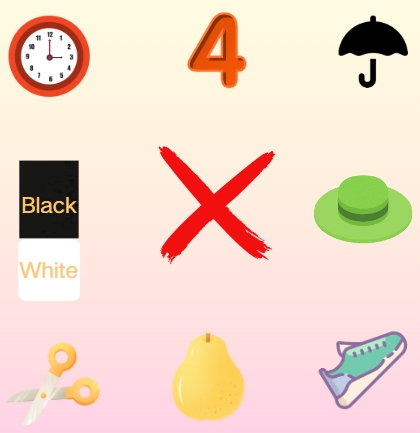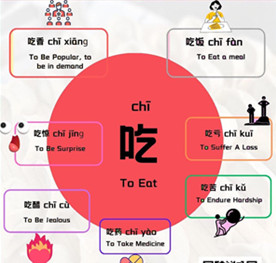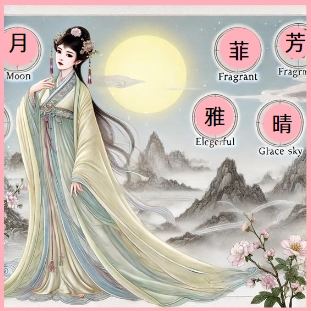Chinese Gift Giving Taboos
When you study Chinese in Beijing or as a business people will likely observe the Chinese custom of giving gifts to classmates, friends, colleagues or business partners. There are some gifts that should be avoided due to cultural symbolism or the fact that that word shares a similar pronunciation to something undesirable.
Chinese gift giving taboos!
Clocks –sòng zhōng ( 送钟 )
In Chinese culture, giving someone a clock (sòng zhōng) is considered extremely inauspicious. The phrase “sòng zhōng” sounds identical to “送终”, which refers to the ritual of attending to a deceased person. This phonetic similarity associates clocks with death and funerals, making them an unsuitable gift for any occasion. Giving a clock could imply that you are wishing bad luck or an untimely death upon the recipient.
Green Hats – dài lǜ mào zi (戴绿帽子)
In Chinese culture, wearing a green hat (dài lǜ mào zi) is synonymous with infidelity. It means that a man’s wife is cheating on him. Because of this, it’s considered highly offensive to give a green hat as a gift, particularly to a married man. It symbolizes shame and betrayal, making it a definite no-go when selecting gifts.
Umbrellas – sǎn (伞)
The Chinese word for umbrella (sǎn) sounds similar to the word for “separation” (sàn). Due to this homophonic association, giving an umbrella can be interpreted as wishing that the recipient’s relationship or friendship will come to an end. As a result, it’s best to avoid giving umbrellas, especially to couples or close friends, as it could be seen as a bad omen for their future together.
Chrysanthemums – júhuā(菊花)
 Chrysanthemums (júhuā) are beautiful flowers but hold a somber meaning in China. They are traditionally associated with funerals and mourning, making them an inappropriate gift for celebratory occasions. Offering chrysanthemums at weddings or birthdays could be viewed as highly insensitive, as they symbolize death and grief.
Chrysanthemums (júhuā) are beautiful flowers but hold a somber meaning in China. They are traditionally associated with funerals and mourning, making them an inappropriate gift for celebratory occasions. Offering chrysanthemums at weddings or birthdays could be viewed as highly insensitive, as they symbolize death and grief.
Share a Pear – fēnlí ( 分梨/离)
In Chinese, the word for “pear” (lí) sounds the same as the word for “separation” (lí). Sharing a pear with someone is often considered a bad omen, as it could symbolize the end of a relationship or friendship. When dining with others, it’s best to avoid splitting a pear—eating the entire pear yourself is the safer choice to avoid any unintended message.
The Number “4” – sì ( 四/死)
The number four (sì) is avoided in many aspects of Chinese culture because it sounds like the word for “death” (sǐ). This superstition is so strong that many buildings in China omit the fourth floor entirely, similar to how some Western buildings avoid the 13th floor. When giving gifts, try to avoid giving items in sets of four, and if giving cash, avoid amounts that include the number four, such as ¥40 or ¥400.
Appropriate Gifts in China
 While it’s important to be mindful of the taboos, there are also many thoughtful and culturally appropriate gifts that are highly appreciated in China. Here are some ideas:
While it’s important to be mindful of the taboos, there are also many thoughtful and culturally appropriate gifts that are highly appreciated in China. Here are some ideas:
Tea 茶 chá
Tea is a symbol of respect, harmony, and health in China. Offering a high-quality tea as a gift is seen as a thoughtful and appropriate gesture for nearly any occasion, whether business-related or personal.
Fruit baskets 果篮 guǒlán
Fruit baskets are often given to convey good health and prosperity. They are particularly popular during festivals and special occasions. Just remember to avoid pears due to the homophonic association with separation.
Quality alcohol 酒 jiǔ
In business contexts, a bottle of high-quality alcohol, such as a fine wine or Chinese baijiu, is a common and appreciated gift. It symbolizes the wish for a successful and long-lasting relationship.
Health supplements 保健品 bǎo jiàn pǐn
Offering health supplements shows that you care about the recipient’s well-being. In Chinese culture, gifts that promote health and longevity are always welcomed, especially for older family members or colleagues.
Conclusion
Being aware of Chinese gift-giving taboos can help you honor cultural traditions and avoid embarrassing missteps. By choosing appropriate gifts and steering clear of those with negative connotations, you’ll demonstrate respect and consideration, building stronger and more meaningful relationships.
Although customs may vary from region to region or within different families, this guide serves as a helpful starting point. When in doubt, seek advice from a local friend or colleague to ensure your gift is received in the best possible light.
HSK Vocabulary for Gift-Giving
| Character | Pinyin | English |
Level |
| 四 | sì | Four | HSK1 |
| 八 | bā | Eight | |
| 鞋 | xié | Shoes | HSK 2 |
| 帽子 | màozi | Hat | |
| 刀 | dāo | Knife | HSK 3 |
| 伞 | sǎn | Umbrella | |
| 钟 | zhōng | Clock/Bell | HSK 4 |
| 散 | sàn | To scatter/disperse | |
| 梨 | lí | Pear | HSK 5 |
| 终 | zhōng | End | |
| 邪 | xié | Evil | |
| 保健品 | bǎojiànpǐn | Health products | HSK6 |








